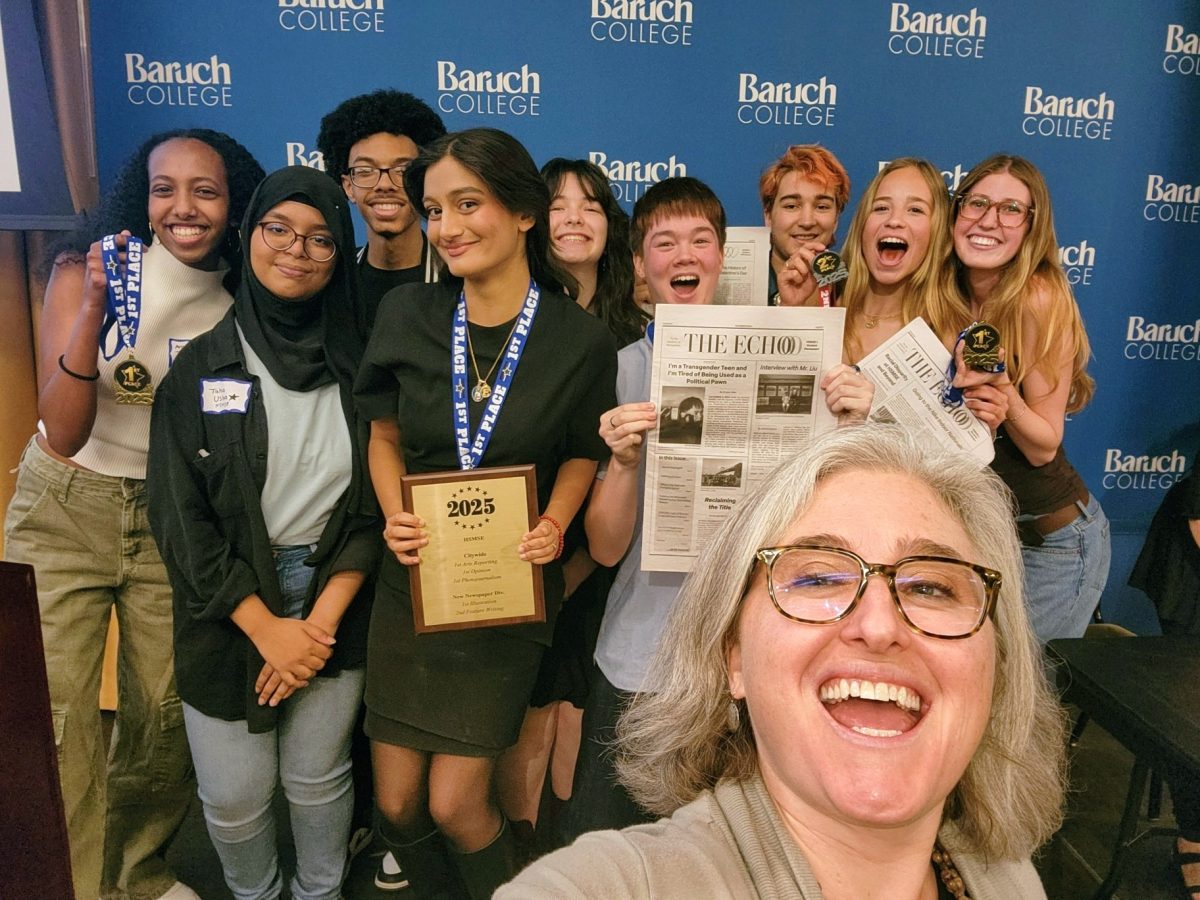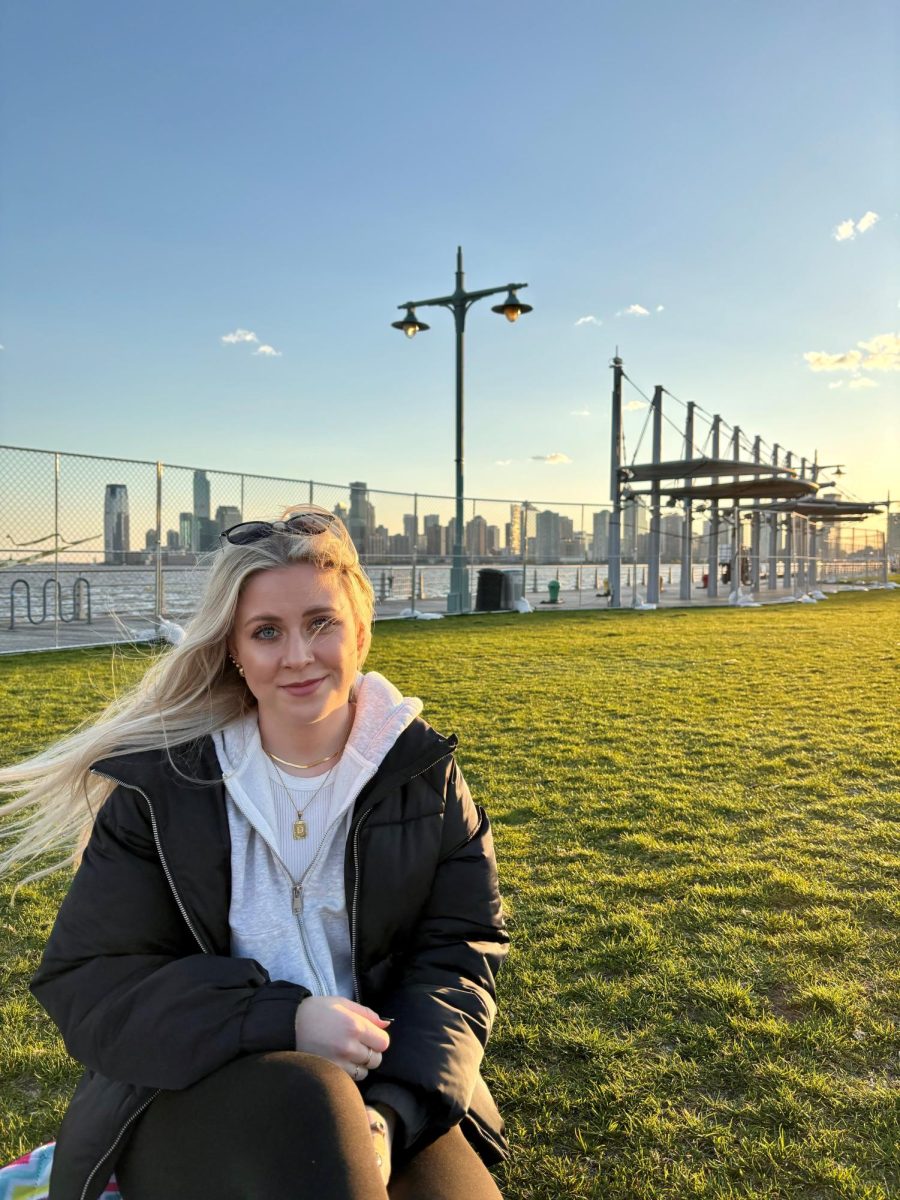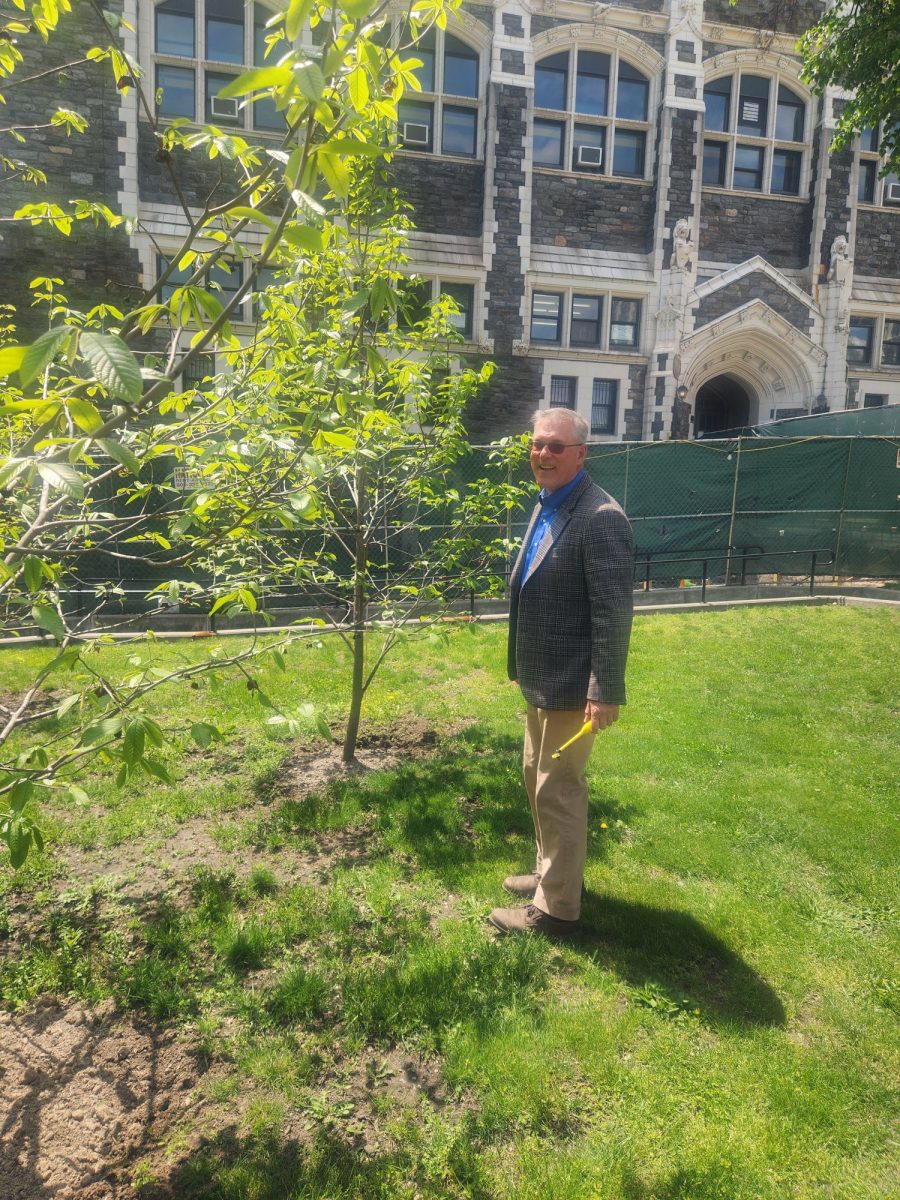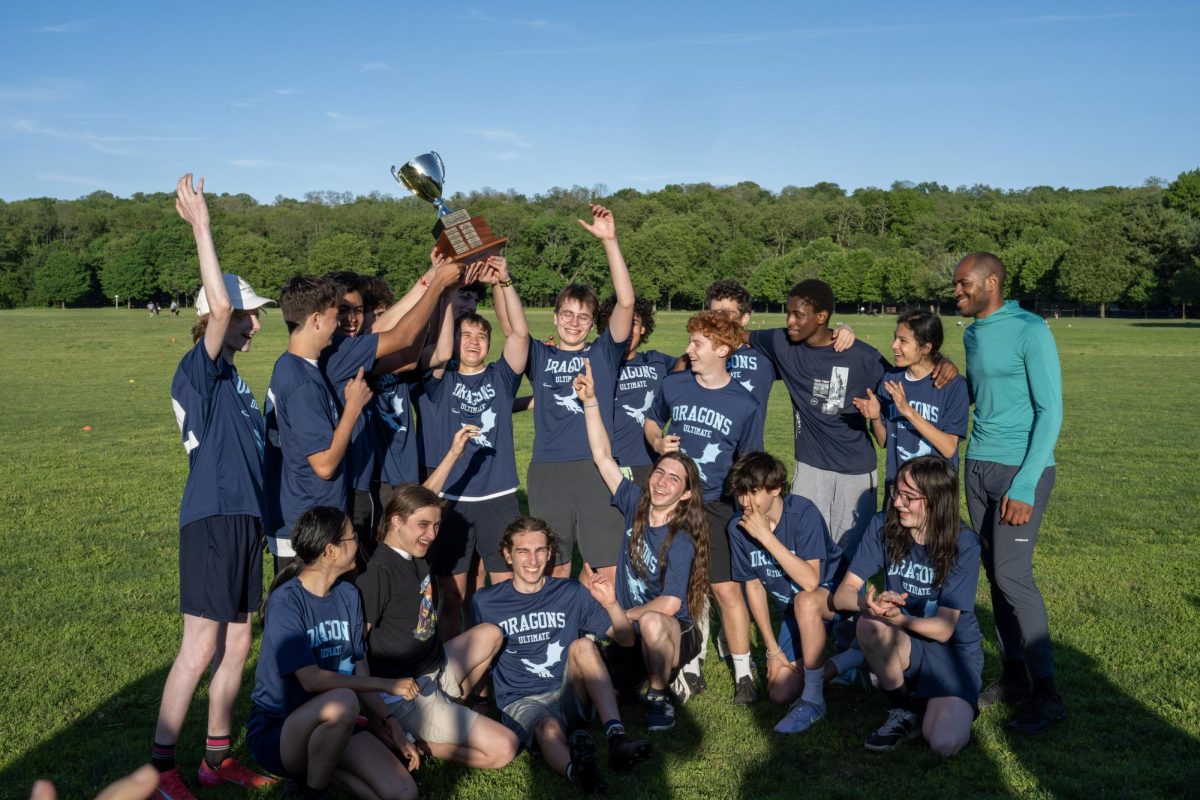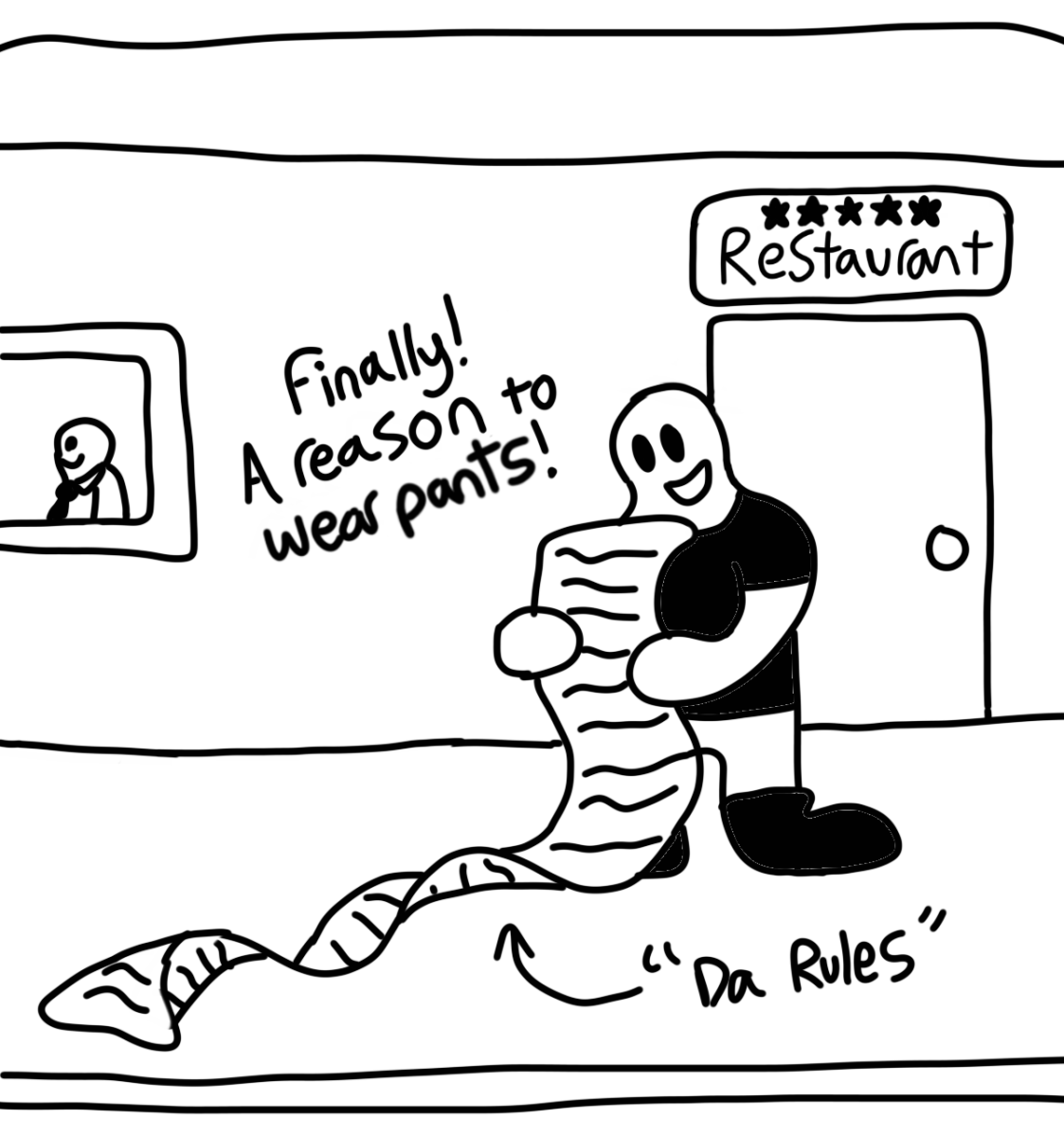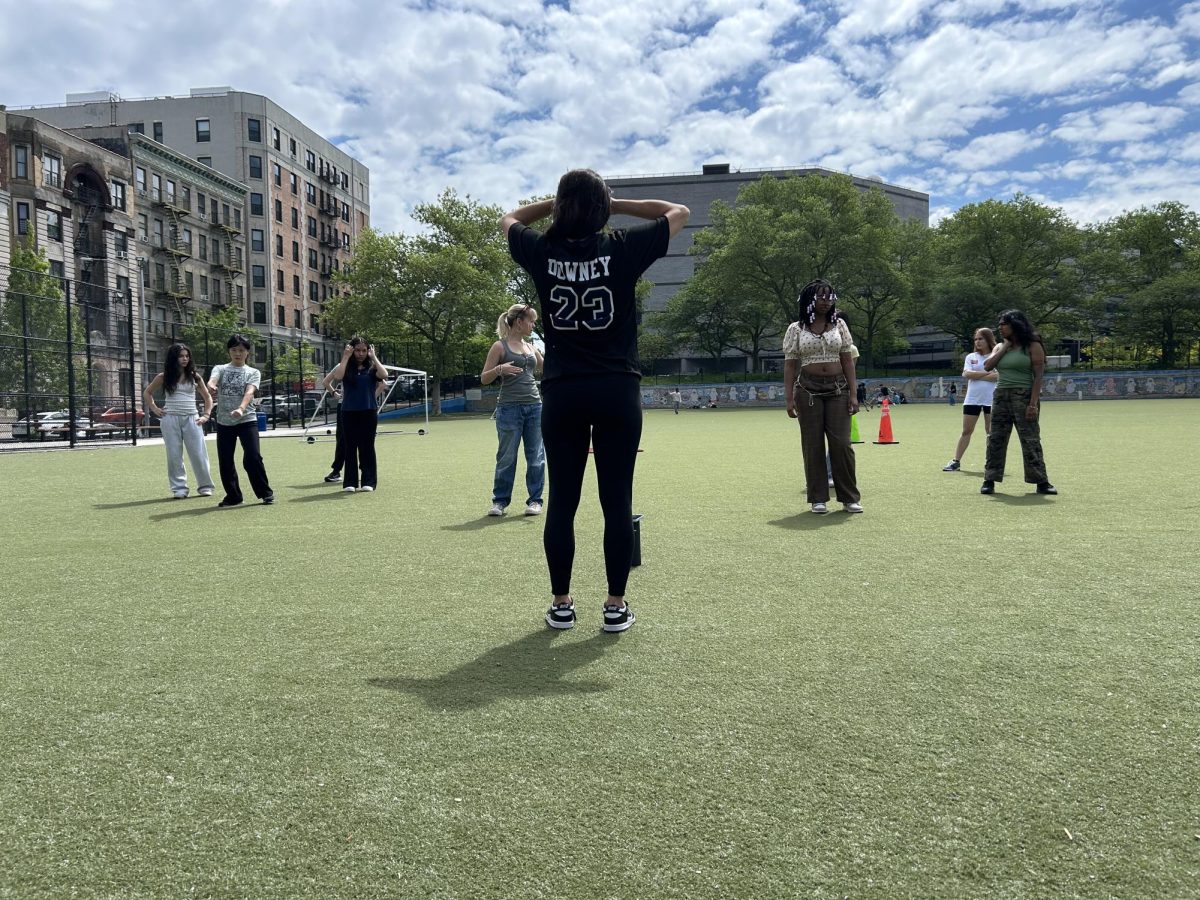As the presidential baton was handed back to Donald Trump, many people anticipated harsh immigration policies. So far, the 47th president has made some startling crackdowns on undocumented immigrants. Many students at HSMSE are immigrants or have family members who are, including this reporter. Because there have been so many executive orders and announcements, The Echo wanted to answer some of the questions that students in immigrant families might have. Please keep in mind that things are changing very quickly and this information addresses the situation as it seemed at the end of February 2025. We reached out to lawyers, researched information on nonprofit websites, and scrutinized articles in respected sources such as The New York Times and the Harvard Law Review to address some of the most important questions. The Echo particularly wants to thank Lenni Benson, a professor at New York Law School and the founder of the Safe Passage Project—a nonprofit immigration legal services organization that provides free lawyers to refugee and immigrant children in the New York City area—for sharing her expertise in an interview.
Please note: All of the lawyers we spoke to said it’s important to know that this is general information about laws and policies, not legal advice; each case is different and requires a thorough review. It is VERY important to only consult a reputable organization or lawyer for legal advice. Some nonprofit organizations that can help are listed at the end of this article.
My parents are undocumented and I am a U.S. Citizen or permanent resident.
I am afraid…
That they will get deported. How can I keep that from happening?
Deportation does not happen quickly unless an individual has been deported before. For a U.S. citizen in high school, usually their family has lived in the United States for a long time. If they have not already been before an immigration judge and received an order of deportation, it’s very unlikely that anything would happen very quickly. The family would have a right to hire their own attorney or try to find a nonprofit law firm to represent them. Because people who entered without a visa less than two years ago, or are close to the U.S. border zone (which New York is), can be put in an expedited removal process, those people should try to learn about how to seek asylum or other immigration remedies.
If it happens what will I do? How can I reach them?
If a parent is arrested, there may be a brief period of time when you don’t know where they are. ICE (Immigration and Customs Enforcement) has an online tool called the Online Detainee Locator System, which will tell you where your parent is being held if they already have an Alien Registration Number or you know their birthday or their country of origin, usually after 48 hours. There is a period of time when it will be difficult for them to contact anyone, but again, most people cannot just be summarily removed. If a family has somebody who already has a deportation order, Professor Benson advised that they should be consulting an attorney and have a plan for what they will do if a parent is arrested.
Do I have to leave the country with them? Can I leave with them?
If you are a citizen or permanent resident you don’t have to leave, but if you are a minor you need a legal guardian to watch out for you. These things are hard to talk about but planning is essential. Parents can fill out what is called a Standby Guardianship Form allowing someone—maybe an aunt or older sibling or even a trusted family friend—to become a minor’s guardian if the parents are “administratively separated,” which includes being deported or detained. A standby guardianship only comes into effect if your parents are not able to be there for you. Nonprofit law organizations like the Legal Aid Society have these forms on their websites and may be able to help parents fill them out correctly. Parents could also fill out a Designation of Person in Parental Relation form, which allows someone to make school and healthcare decisions for a minor.
If your parents have to leave the country, the U.S. government may be able to arrange for you to travel with them if that is what your family chooses. The consulate in your parents’ home country may also be able to work with ICE to coordinate their travel and yours. This would be an important time to get in touch with a lawyer as well.
Who is going to take care of my younger brothers and sisters?
If you are 18, your parents can still fill out a standby guardianship for your siblings, and a young person can actually have a guardian up until age 21 if they want. While an 18-year-old is allowed to be the guardian for younger siblings, taking charge is a big step. It may be very hard to reach out to distant relatives, or even your best friends in school to ask the question: “If something should happen to my mom or dad, would you be willing to become our guardians?” An adult doesn’t have to provide financial support to be a guardian. Children would likely be better off getting some financial support from the state if their parents really are gone, Professor Benson advises.
Can my citizenship be taken away?
The executive order proposing to end birthright citizenship for the children of undocumented parents and some other immigrants DID NOT propose to revoke U.S. citizenship from children who ALREADY had it if their parents were undocumented when they were born in the U.S.; it only tried to end birthright citizenship for children of undocumented immigrants born on or after February 19, 2025.
And, the U.S. Court of Appeals for the Fourth Circuit ruled against the Trump administration, writing that the executive order’s proposal to end birthright citizenship for children born to undocumented immigrants was “very likely unconstitutional.” (Federal Courts order is first level, District: second level, Appeals courts: final level, U.S. Supreme Court.)
I am undocumented.
I am afraid…
That I will get deported:
Please refer to the question at the beginning of the article. But again, deportation is not something that usually happens quickly unless someone has previously been ordered to be deported. The student would have a right to find an attorney to represent them. Some of the organizations listed at the bottom of this article can help.
What can I do if I don’t want to leave?
There are a few ways that children specifically can stay. If a youth (anyone younger than 21) is living with only one parent or neither parent because one parent is not there—possibly deceased, in the home country, or the family is separated—that child may be eligible for something called Special Immigrant Juvenile Status. While the process requires several steps, the minor may be able to get lawful permanent residency even if they were undocumented.
Can my school protect me?
In New York City, people are not allowed to be on public school grounds unless they are authorized. According to current NYC Department of Education policy, New York City schools do not allow immigration officers to come onto campus and arrest children unless that immigration officer has a judicial warrant, and warrants are rare. In Professor Benson’s 40 years as an immigration lawyer in New York, she says she has never seen one for a student in an NYC public school.
If I have to leave, when can I come back?
Immigration laws are complicated and often dependent on the specific situation. Some young people have been able to secure student or temporary work visas. Someone who is formally deported has a five-year bar before they can return. However, the government does not automatically penalize people for living in the U.S. as an undocumented minor under the age of 18 when processing immigration applications but after turning 18, you begin to accrue “unlawful presence” in immigration terms and that can affect when you can return.
I don’t want everyone to know the immigration issues about me and my family. Where can I go for support without getting turned in to ICE or Social Services, or everyone finding out?
Immigration lawyers are required to keep immigration status confidential—school social workers are too (unless they believe you’re being abused). Also, religious and spiritual advisors are often held to confidentiality in regard to things told to them in confidence or confessionals. Teachers and other school staff are not held to the same confidentiality, which is something to consider when sharing personal information. The internet is not a good resource for counseling or research, due to the lack of privacy and the vast amount of misinformation.
There are many organizations that are made to help with issues regarding immigration status. The Door, for instance, is designed to help young people navigating immigration issues, and has four locations across NYC. They also assist with healthcare, education, counseling, job help, and peer counseling. The Door is a safe place to go for high school students looking for a secure place to receive information and help.
I was excited about going to college soon but now I am worried.
What do these new rules mean for my chances of going to college?
As an undocumented person:
Many colleges write on their website that they welcome applications from students and specifically that a student’s immigration status should not prevent them from applying.
According to the Higher Ed Immigration Portal, a platform that collates data for immigrant students, 24 states and Washington, D.C. offer in-state tuition to undocumented students. Nine states and Puerto Rico lack clear policies. Only two states, Alabama and South Carolina, actively block undocumented students who do not hold DACA (a specific designation for some young people who were children when they entered and were undocumented in 2012) from enrolling in their public colleges and universities.
Undocumented students are eligible for private financial aid, which is offered by nearly all private colleges and universities and many public ones. However those seeking federal financial aid can only access it if they are able to demonstrate that they are citizens or “eligible noncitizens. ” Eligible noncitizens include permanent residents, refugees, and asylees. The full list is on the government’s federal student aid page.
As a citizen or legal resident whose parents are no longer here:
A parent’s immigration status is not considered in determining a student’s eligibility for federal student aid, and if you are considered an independent student for federal financial aid you only report your income when applying at some colleges.
Independent students whose parents have been removed might include people who are dependent wards of the court, emancipated minors, or those who are in legal guardianship as determined by a court in their state of legal residence. In New York State, a student can be rendered financially independent due to the involuntary dissolution of their family resulting in the relinquishment of their parents’ responsibility and control. (Other circumstances may also make a student considered an independent when applying for financial aid). Private and out-of-state universities may have their own policies, so students should reach out to the financial aid office.
Resources
The Door: 212-941-9090, [email protected]
Safe Passage Project: 212-324-6558, [email protected]
Mayor’s Office of Immigrant Affairs (MOIA) Immigration Legal Support Hotline at 800-354-0365, or call 311 and say “Immigration Legal,” between 9:00 a.m. and 6:00 p.m., Monday to Friday. You can visit their website to learn about your rights in case immigration officials come to your house or stop you, including your right not to answer questions.
It is important to know that even if you are not a U.S. citizen, the U.S. Constitution provides you with certain rights.








